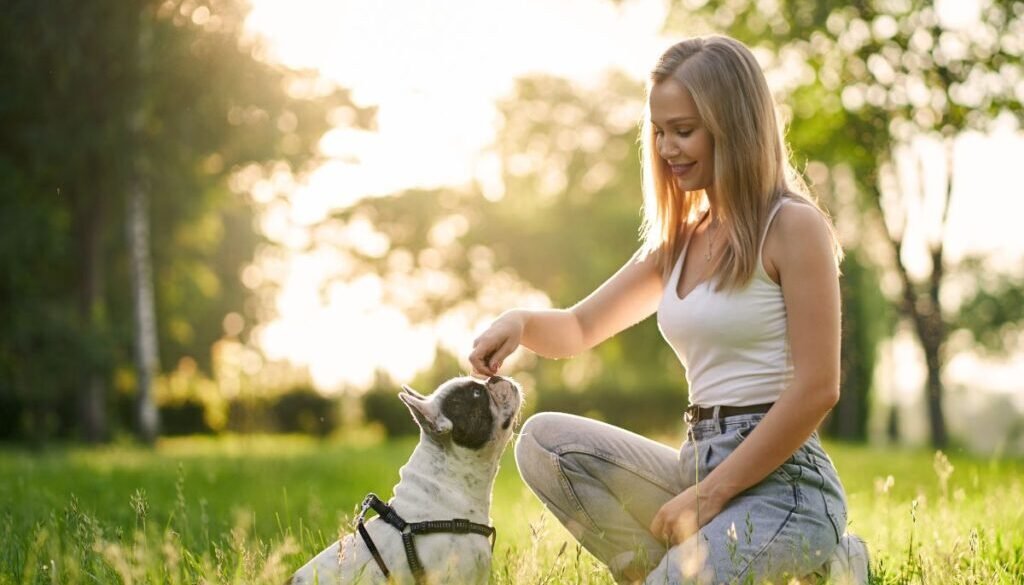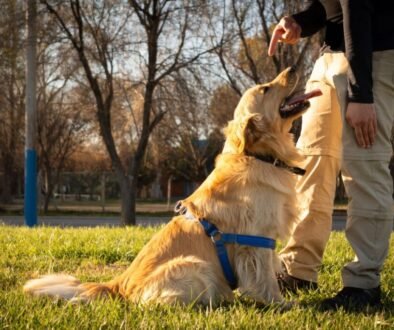How to Train Your French Bulldog to Listen: The Ultimate Guide to a Well-Behaved Pup
Why Training Your French Bulldog is Essential
Ever feel like your adorable French Bulldog has selective hearing? You’re not alone! These charming, bat-eared cuties are known for their stubborn streak. But here’s the good news: with the right training, your Frenchie can become the best-behaved dog on the block.
According to the American Kennel Club, early training and socialization are crucial for all dogs, especially breeds like the French Bulldog. Proper training helps prevent behavioral issues, keeps your dog safe, and strengthens your bond. Plus, who doesn’t want a dog that listens the first time you call them?
Statistics show that dogs who undergo consistent training are 60% less likely to develop anxiety and destructive behaviors. Imagine a peaceful home with a happy, well-adjusted pup—sounds like a dream, right?
As dog trainer Cesar Millan once said, “A dog is a reflection of your energy, patience, and consistency.” Ready to turn your Frenchie into a well-mannered superstar? Let’s get started!
Understanding Your French Bulldog’s Personality
Before diving into training, it’s essential to understand what makes your French Bulldog tick. Frenchies are:
- Stubborn but sweet: They’re intelligent and independent, which can make training challenging but rewarding.
- Eager for attention: Frenchies love their humans and thrive on companionship.
- Playful and curious: They’re always up for a game or adventure.
- Sensitive souls: They respond best to gentle correction and positive reinforcement.
Knowing these traits will help you tailor your training approach to your pup’s personality and set you both up for success.
The Basics of French Bulldog Training
Begin with basic obedience commands like:
- Sit: Hold a treat above their head and move it back until they sit naturally.
- Stay: Ask them to sit, then take a step back and reward them for staying.
- Come: Use an enthusiastic voice and offer a treat when they come to you.
- Leave it: Teach them to avoid things they shouldn’t touch.
Repetition is key. Practice these commands daily in short, fun sessions.
Use Positive Reinforcement
Reward good behavior with:
- Treats: Small, tasty bites your dog loves.
- Praise: A cheerful “Good boy!” or “Good girl!”
- Toys: A quick game of fetch as a reward.
- Affection: Belly rubs and ear scratches go a long way.
Be Consistent and Patient
Training takes time. Practice commands daily and use the same words and gestures each time. Consistency helps your dog understand what you expect. Patience and persistence will lead to success.
Advanced Training Techniques
Leash Training
Frenchies can be excitable on walks. Teach good leash manners by:
- Using a short leash for better control.
- Stopping when they pull and only moving when the leash is slack.
- Rewarding them for walking calmly by your side.
- Practicing in a distraction-free environment at first.
Crate Training
A crate can be a safe haven for your dog. Make it comfortable with:
- Soft bedding and a favorite toy.
- Short sessions at first, gradually increasing time.
- Positive associations, like treats and praise when they enter the crate.
- Never using the crate for punishment—it should be their happy place.
Socialization Skills
Expose your Frenchie to new people, places, and pets early on. This helps them become well-adjusted and reduces anxiety. Socialization prevents fearfulness and aggression down the line.
Common Training Challenges and How to Overcome Them
- Stubbornness: Keep training sessions short and fun.
- Distraction: Train in a quiet environment at first.
- Selective hearing: Use high-value treats to keep their attention.
- Overexcitement: Practice calm greetings and reward good behavior.
When to Seek Professional Help
If your Frenchie shows signs of aggression, extreme anxiety, or persistent disobedience, consider working with a certified dog trainer. Sometimes an expert’s touch makes all the difference.
Training Tools and Essentials
Stock up on the right gear to make training easier:
- Training treats: Small, soft, and irresistible.
- Clicker: For precise marker training.
- Harness: More comfortable and secure than a collar.
- Training pads: Helpful for housebreaking puppies.
Fun Training Games to Boost Obedience
Turn training into playtime with these games:
- Hide and seek: Strengthens recall and keeps them engaged.
- Fetch with commands: Add “sit” or “stay” before throwing the ball.
- Obstacle courses: Build confidence and improve agility.
Conclusion: Building a Lasting Bond
Training your French Bulldog isn’t just about commands—it’s about building trust and respect. Stay patient, consistent, and positive, and you’ll have a loyal, well-behaved companion for years to come. Remember: every training session is a chance to strengthen your bond.
FAQ
How long does it take to train a French Bulldog? It varies, but most dogs learn basic commands within a few weeks with consistent practice.
Are French Bulldogs hard to train? They can be, due to their stubbornness, but their love for attention makes them eager to please.
What’s the best age to start training? The earlier, the better! Start training as soon as you bring your puppy home.
Can older French Bulldogs learn new tricks? Absolutely! With patience and positive reinforcement, older dogs can learn just as well.
What should I do if my French Bulldog ignores me? Go back to basics. Use high-value treats, train in a quiet space, and keep sessions short and engaging.
Ready to turn your Frenchie into the best listener on the block? Grab those treats and start today!



